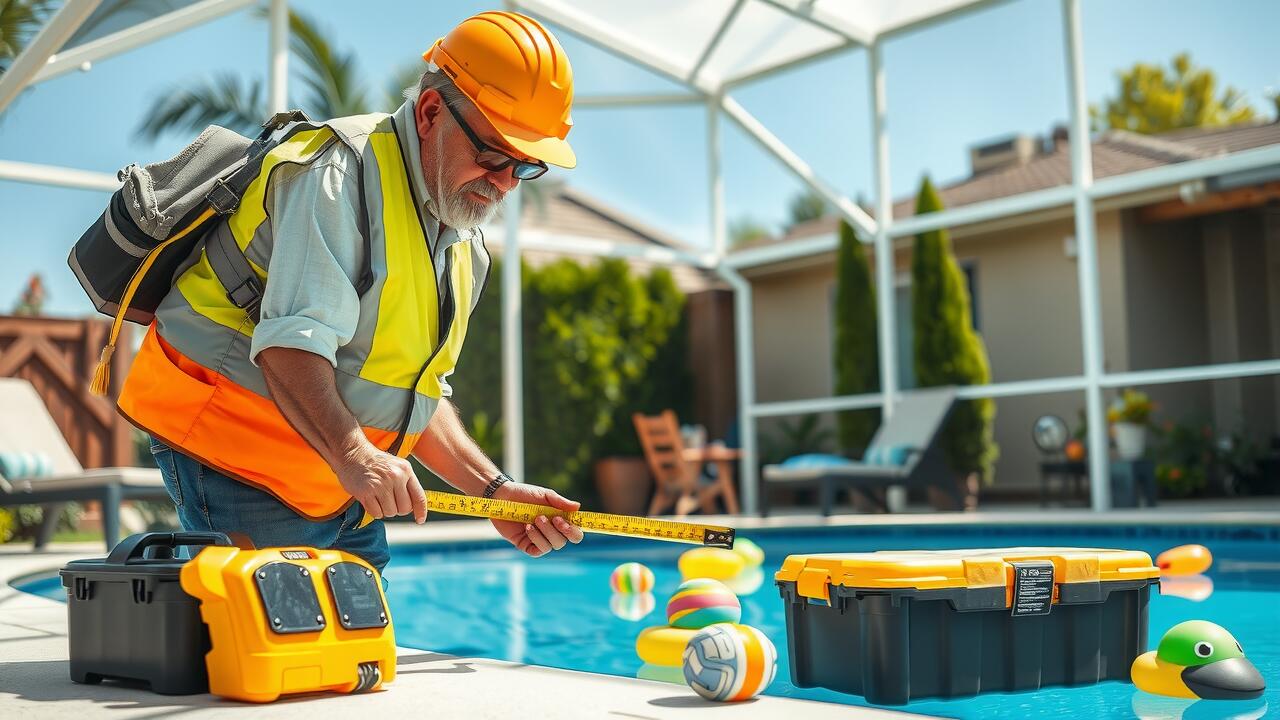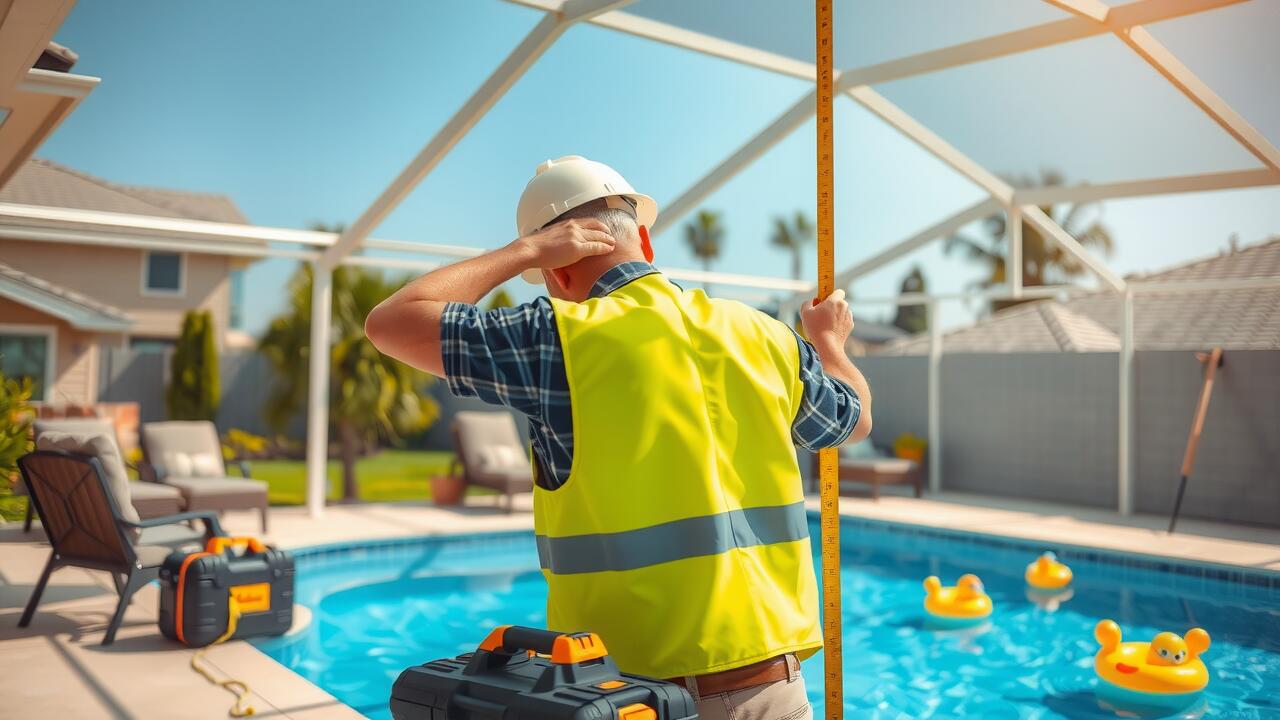
Pool Enclosure Regulations in Florida
Florida’s warm climate and abundant sunshine make pool ownership popular. However, local regulations dictate specific requirements regarding pool enclosures to enhance safety. These regulations aim to protect children and pets from accidental drownings. Additionally, enclosures help prevent unauthorized access and promote responsible pool usage.
Building codes in Florida outline the necessary specifications for pool enclosures, including height, materials, and accessibility features. Homeowners are encouraged to familiarize themselves with these guidelines. Compliance not only ensures safety but also safeguards property values. Pool enclosures can contribute positively to the overall aesthetics of a property while adhering to legal standards.
Understanding Local Building Codes
In Florida, local building codes play a crucial role in determining the specifics of pool enclosures. Each municipality may have its own set of requirements regarding the height, material, and design of these enclosures. Compliance with these regulations helps ensure safety and security, especially for families with children and pets. Homeowners must verify that their pool enclosures meet the necessary standards to avoid potential fines and ensure proper insurance coverage.
Understanding these codes is essential for anyone considering a pool enclosure installation. The regulations are often focused on preventing accidents and promoting responsible usage of pool areas. Additionally, these guidelines can help homeowners choose the right materials and styles that fit within local aesthetic norms. Being knowledgeable about local building codes not only aids in creating a safe environment but also enhances the overall value of the property.
Energy Efficiency and Pool Enclosures
Pool enclosures serve a significant purpose in enhancing the energy efficiency of swimming pools. They act as a barrier against the elements, limiting the exposure of the water to wind, rain, and debris. This containment reduces heating costs by maintaining water temperature, allowing pool owners to enjoy warmer water with less energy input. In sunny Florida, solar gain becomes more pronounced with enclosures, capturing and retaining heat from the sun throughout the day.
Moreover, the presence of pool enclosures minimizes water evaporation, a common issue faced by outdoor pools. Unprotected pools can lose significant amounts of water to evaporation, leading to increased refilling needs and higher water bills. With enclosures in place, the evaporation rate decreases considerably, contributing to overall water conservation. This efficiency not only saves on utility costs but also promotes a more sustainable use of resources, making enclosures an environmentally friendly option for pool owners.
Reducing Heating Costs and Water Evaporation
Pool enclosures play a crucial role in reducing heating costs by creating a greenhouse-like effect. This structure traps warmth from the sun and retains heat within the pool area, preventing significant heat loss during cooler evenings or chilly seasons. With less energy required to maintain optimal water temperatures, homeowners can enjoy substantial savings on their heating bills.
In addition to heating efficiency, pool enclosures significantly reduce water evaporation. The covering acts as a barrier, limiting exposure to wind and sunlight, which are the primary factors contributing to evaporation. This preservation of water not only helps maintain the pool’s water level but also reduces the frequency of refilling. Consequently, homeowners benefit from lower water costs and less chemical usage for maintaining pool balance.
Maintenance Advantages of Enclosed Pools
Pool enclosures provide significant benefits when it comes to maintenance. With a barrier in place, debris such as leaves, twigs, and insects is less likely to make its way into the pool. This can lead to a considerable reduction in cleaning time and the need for frequent skimming or vacuuming. Additionally, by limiting the access of the elements, pool enclosures help maintain a more stable water quality, reducing the frequency of chemical balancing required.
Another advantage of pool enclosures is the reduction in algae growth. Since sunlight is a primary factor in the proliferation of algae, limiting direct sunlight with an enclosure helps inhibit its development. This not only lessens the need for harsh chemicals to combat algae but also improves the overall clarity and cleanliness of the water. Overall, the installation of pool enclosures makes pool upkeep simpler and more efficient for owners.
Simplifying Cleaning and Upkeep
Pool enclosures significantly reduce the amount of debris that enters the pool. By providing a barrier against leaves, insects, and other outdoor elements, they minimize the frequency of cleaning. Pool owners appreciate the convenience of having to skim the surface and vacuum less often, allowing more time for leisure rather than maintenance. The enclosure creates a more controlled environment, which helps in keeping the water cleaner for longer periods.
In addition to less debris, pool enclosures can simplify routine maintenance tasks. Many designs offer easy access to the pool area, enabling quick cleaning of surrounding surfaces and the enclosure itself. With fewer contaminants entering the water, the overall chemical balance remains stable, resulting in lower maintenance costs. These benefits not only enhance the enjoyment of pool usage but also contribute to long-term savings for the homeowner.
FAQS
Why do Floridians enclose their pools?
Floridians enclose their pools primarily to comply with safety regulations, enhance energy efficiency, and simplify maintenance. Enclosures help prevent accidental drownings, reduce heating costs, and keep pools cleaner.
What are the regulations regarding pool enclosures in Florida?
Florida has specific building codes and regulations that require pool enclosures to ensure safety and compliance. These codes vary by locality, so it’s essential for homeowners to consult local building authorities for the exact requirements.
How do pool enclosures improve energy efficiency?
Pool enclosures create a barrier that helps retain heat, reducing heating costs and minimizing water evaporation. This can lead to lower energy bills and less frequent need for water refills.
What are the maintenance advantages of having an enclosed pool?
Enclosed pools require less frequent cleaning because debris like leaves and insects are kept out. This makes upkeep easier and can save time and effort for pool owners.
Do pool enclosures also provide benefits for landscaping?
Yes, pool enclosures can enhance landscaping by creating a more defined outdoor space. They can also reduce water loss from evaporation, benefiting nearby plants and gardens.
